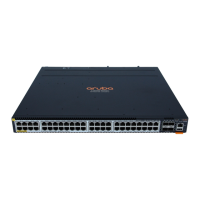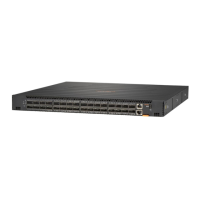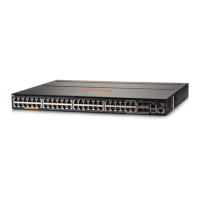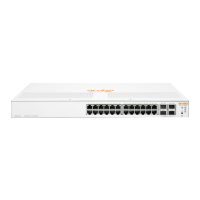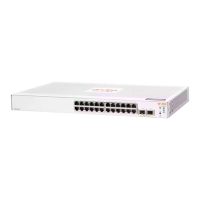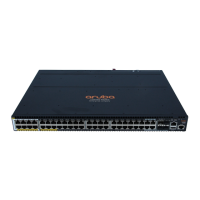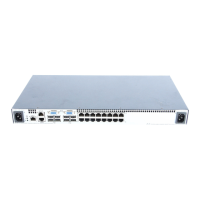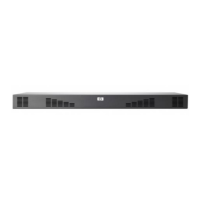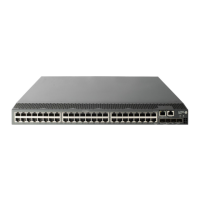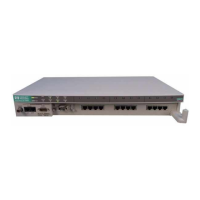Fast-uplink troubleshooting
Some of the problems that can result from incorrect use of fast-uplink MSTP include temporary loops and
generation of duplicate packets.
Problem sources can include:
• Fast-uplink is configured on a switch that is the MSTP root device.
• Either the Hello Time or the Max Age setting (or both) is too long on one or more switches. Return the
Hello Time and Max Age settings to their default values (2 seconds and 20 seconds, respectively, on a
switch).
• A "downlink" port is connected to a switch that is further away (in hop count) from the root device than the
switch port on which fast-uplink MSTP is configured.
• Two edge switches are directly linked to each other with a fast-uplink (Mode = Uplink) connection.
• Fast uplink is configured on both ends of a link.
• A switch serving as a backup MSTP root switch has ports configured for fast-uplink MSTP and has become
the root device because of a failure in the original root device.
SSH-related problems
Switch access refused to a client
Even though you have placed the client's public key in a text file and copied the file (using the copy tftp pub-
key-file command) into the switch, the switch refuses to allow the client to have access. If the source SSH
client is an SSHv2 application, the public key may be in the PEM format, which the switch (SSHv1) does not
interpret. Check the SSH client application for a utility that can convert the PEM-formatted key into an ASCII-
formatted key.
Executing IP SSH does not enable SSH on the switch
The switch does not have a host key. Verify by executing show ip host-public-key. If you see the message
ssh cannot be enabled until a host key is configured (use 'crypto' command).
you need to generate an SSH key pair for the switch. To do so, execute crypto key generate (see
"Generating the switch's public and private key pair" in the SSH chapter of the access security guide for your
switch.)
Switch does not detect a client's public key that does appear in the switch's public key
file (show ip client-public-key)
The client's public key entry in the public key file may be preceded by another entry that does not terminate with a
new line (CR). In this case, the switch interprets the next sequential key entry as simply a comment attached to
the preceding key entry. Where a public key file has more than one entry, ensure that all entries terminate with a
new line (CR). While this is optional for the last entry in the file, not adding a new line to the last entry creates an
error potential if you either add another key to the file at a later time or change the order of the keys in the file.
An attempt to copy a client public-key file into the switch has failed and the switch lists
one of the following messages
Download failed: overlength key in key file.
Download failed: too many keys in key file.
Download failed: one or more keys is not a valid RSA public key.
Chapter 13 Troubleshooting 469
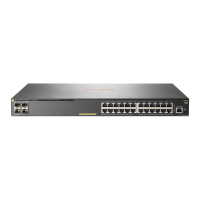
